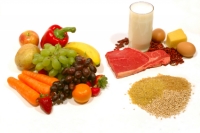Diabetes Mellitus, more commonly known simply as diabetes, is a condition that is characterized by abnormally high glucose in the bloodstream generally caused either by the body's incapability to generate enough insulin or the incapability of blood cells to effectively absorb insulin produced by the body. Common signs of the disease are frequent urination or polyuria, uncontrollable thirst or polydipsia, and unexplained hunger or polyphagia.
Three Major Types of Diabetes
1. Diabetes Mellitus Type 1
This is caused by the inability of the pancreas to produce enough insulin. It can come in one of two kinds either immune-mediated or idiopathic with most cases being of the first type. 10% of Diabetics possess type 1 of the illness. To date there is still no known method of preventing the development of the condition. It is also puzzling to experts that most people with the condition are generally healthy and have an ideal weight before diagnosis. The illness can develop at any stage of one's life but it starts to manifest itself usually during the toddler years earning it the nickname juvenile diabetes.
2. Diabetes Mellitus Type 2
This condition is brought about by the body's inability to properly make use of the insulin secreted by pancreas and is in rare cases also accompanied by insufficient insulin production. It is the most common type of diabetes. It is believed that defective insulin receptor cells are what cause insulin resistance. The biggest symptom of this illness is hyperglycemia or alarmingly high levels of blood sugar. It is the easiest type to prevent because healthy eating and enough exercise can greatly mitigate its development. During the early stages a healthy diet is enough to manage the disease and help the individual lead a normal life. In advanced stages medication that mitigates the liver's ability to produce glucose or drugs that improve the sensibility of insulin receptor cells can be taken.
3. Diabetes Mellitus Gestational
This is type 2 diabetes that develops only during pregnancy and disappears after child birth. It also requires the same form of management which is healthy eating and enough exercise to keeps blood sugar levels stable and prevent weight gain. It is however a little harder because the health and nutritional needs of the unborn child also need to be considered. It should be dealt with accordingly even if it tends to remedy itself because it increases the risks of child birth and may also result to the baby developing type 2 diabetes in the future.






